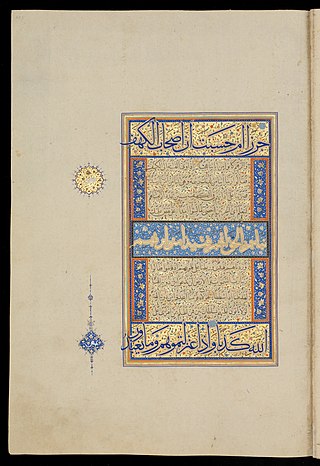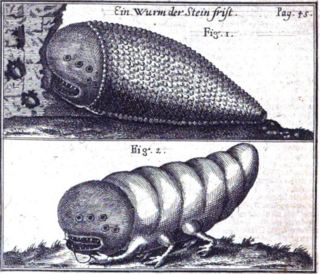Related Research Articles

Solomon, also called Jedidiah, was a monarch of ancient Israel and the son and successor of King David, according to the Hebrew Bible or Old Testament. He is described as having been the penultimate ruler of an amalgamated Israel and Judah. The hypothesized dates of Solomon's reign are from 970 to 931 BCE. After his death, his son and successor Rehoboam would adopt a harsh policy towards the northern tribes, eventually leading to the splitting of the Israelites between the Kingdom of Israel in the north and the Kingdom of Judah in the south. Following the split, his patrilineal descendants ruled over Judah alone.

Asmodeus or Ashmedai is a king of demons in the legends of Solomon and constructing Solomon's Temple.

The Seven Sleepers, also known in Christendom as Seven Sleepers of Ephesus, and in Islam as Aṣḥāb al-Kahf, lit. Companions of the Cave, is a late antique Christian and later also Islamic legend. The Christian legend speaks about a group of youths who hid inside a cave outside the city of Ephesus around AD 250 to escape Roman persecutions of Christians and emerged many years later. The Qur'anic version of the story appears in Sura 18 (18:9–26).

Bakkah, is a place mentioned in surah 3, ayah 96 of the Qur'an, a verse sometimes translated as: "Surely the first House ˹of worship˺ established for humanity is the one at Bakkah—a blessed sanctuary and a guide for ˹all˺ people."
Yaqub ibn Ishaq ibn Ibrahim, later given the name Israil, is recognized by Muslims as an Islamic prophet. He is held to have preached the same monotheism as his forefathers: Abraham, Ishmael, and Isaac.

Yusuf is a prophet and messenger of God mentioned in the Quran and corresponds to Joseph, a person from the Hebrew and Christian Bible who was said to have lived in Egypt before the New Kingdom. Of Jacob's children, Joseph reportedly had the gift of prophecy through dreams. Although the narratives of other prophets are presented in a number of surahs, Joseph's complete narrative appears in only one: Yusuf. Said to be the most detailed narrative in the Quran, it contains more details than its biblical counterpart.

Sulaimān ibn Dāwūd was, according to the Quran, a nabī and ruler of the Israelites. Generally, Islamic tradition holds that he was the third ruler of the Israelites and a wise one.
Al-Fīl is the 105th chapter (surah) of the Quran. It is a Meccan sura consisting of 5 verses. The surah is written in the interrogative form.

Al-Kahf is the 18th chapter (sūrah) of the Quran with 110 verses (āyāt). Regarding the timing and contextual background of the revelation, it is an earlier Meccan surah, which means it was revealed in Mecca, instead of Medina.
An-Naml is the 27th chapter (sūrah) of the Qur'an with 93 verses (āyāt).
Saba’ is the 34th chapter (sūrah) of the Qur'an with 54 verses (āyāt). It discusses the lives of Solomon and David, a story about the people of Sheba, challenges and warnings against the disbelievers as well as the promises related to the Day of Judgment.
Ar-Rahman is the 55th Chapter (Surah) of the Qur'an, with 78 verses (āyāt).

In the Gemara, the shamir is a worm or a substance that had the power to cut through or disintegrate stone, iron and diamond. King Solomon is said to have used it in the building of the Solomon's Temple in place of cutting tools. For the building of the Temple in Jerusalem, which promoted peace, it was inappropriate to use tools that could also cause war and bloodshed.

Adam is the name given in Genesis 1-5 to the first human. Adam is the first human-being aware of God, and features as such in various belief systems.

The Beast of the Earth, also called "The Dabba/Dabbah" is a creature mentioned in Surah An-Naml: Ayat 82 of the Quran and associated with Judgement Day. For this reason, the Beast of the Earth is often mentioned in eschatological writings as a sign of Judgement Day close to the event of the sun rising in the west. The Quran doesn't offer details about the nature of the Beast of the Earth, but various interpretations have linked it to the Beast of the Earth mentioned in the New Testament Book of Revelation or to the monsters from Turkic mythology. It is also claimed by few hadiths that the beast, ad dabbah will mark on the forehead and on the nose of the people, the mark on the forehead may depict that one would be a believer and the mark on the nose will tell that it was a disbeliever.
The Scrolls of Abraham are a part of the religious scriptures of Islam. These scriptures are believed to have contained the revelations of Abraham received from the God of Abrahamic religions, which were written down by him as well as his scribes and followers.
The Quran is viewed to be the scriptural foundation of Islam and is believed by Muslims to have been sent down by Allah (God) and revealed to Muhammad by the angel Jabreel (Gabriel). The Quran has been subject to criticism both in the sense of being the subject of an interdisciplinary field of study where secular, (mostly) Western scholars set aside doctrines of its divinity, perfection, unchangeability, etc. accepted by Muslim Islamic scholars; but also in the sense of being found fault with by those — including Christian missionaries and other skeptics hoping to convert Muslims — who argue it is not divine, not perfect, and/or not particularly morally elevated.

Uzair is a figure who is mentioned in the Quran, Surah at-Tawbah, verse 9:30, which states that he was "revered by the Jews as the son of God". Uzair is most often identified with the biblical Ezra. and according to some with the ancient Egyptian deity Osiris. Historians have described the reference as enigmatic since such views have not been found in Jewish sources. Islamic scholars have interpreted the Quranic reference in different ways, with some claiming that it alluded to a "specific group of Jews".

In the Bible, Lot's wife is a figure first mentioned in Genesis 19. The Book of Genesis describes how she became a pillar of salt after she looked back at Sodom. She is not named in the Bible, but is called Ado or Edith in some Jewish traditions. She is also referred to in the deuterocanonical books at the Book of Wisdom and the New Testament at Luke 17:32.
References
- ↑ Jewish Encyclopedia: Solomon, Solomon's Carpet
- ↑ Clear Quran: Surah 27
- ↑ Jewish Encyclopedia: Solomon, Solomon's Carpet
- ↑ Jewish Encyclopedia: Proverbs, Not Solomonic
- ↑ Ask The Rabbi: Purpose of Animals
- ↑ Jewish Encyclopedia: Solomon, Solomon's Carpet
- ↑ Quran Dot Com: Surah 27:18 English translations